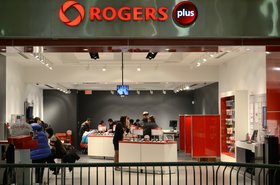Founded in 1960, Rogers Communications has seen its fair share of change. But despite our snowballing digital landscape, the company has rolled with the punches, maintaining a strong foothold in the Canadian data center space.
Below, Christine Pop, Roger's vice president of wholesale solutions, reflects on what’s changed and what the company has learned along the way.
As we approach the tail end of 2022, what are some of the major takeaways you have from the past 12-18 months?
It seems that digital transformation is in the technology headlines on a daily basis. It’s a topic that has been trending across all industries and telecoms are uniquely positioned to support that evolution.
One of the keys to that enablement that has really been highlighted in recent months is being easy to interact and do business with. Whether it’s scaling bandwidth on demand, offering self-serve tools and APIs, or being able to pick up the phone to reach the support you need – serving customers in the way that works for them is crucial for service providers.
And, while automation and optimization are important, the wholesale space often demands a more nuanced and bespoke approach to serve customers effectively. When a customer is dealing with multiple operators to serve their clients, being agile and easy to do business with is a key differentiator.
The past year has also brought to light the need for resiliency. How, as a company or as an individual, you respond in a crisis to come back stronger. Our team never ceases to amaze me and, as our founder Ted Rogers once said, “The best is yet to come.”
What major changes within the Canadian telecommunications market have you observed in recent years?
The focus has really sharpened on bridging the digital divide. While Canada is the second largest country in the world by total area, our population density is the 12th lowest in the world, with only approximately 10 people per square mile and much of the population living close to the southern-most border.
Connecting underserved areas including rural and remote communities across the country, ensuring all Canadians have access to consistent, quality voice and broadband service continues to be a focus that bring the industry, government, and regulatory bodies together to move the needle forward in closing that divide.
Rogers continues to maintain a stronghold in the Canadian data center space. Can you talk about why that is valuable to the wholesale community that you serve and how this is a differentiator?
Absolutely. In addition to having a single point of contact to support end to end requirements, another benefit – which is a hot topic lately – is the issue of data sovereignty.
Does traffic remain within Canada? Will traffic flow through the US and what does that mean to my clients? In today’s landscape, these are important questions to help meet your client’s data security and privacy requirements.
What predictions do you have about growth and challenges for carriers in the year ahead? Where do you see the industry heading?
It’s a bit of a stereotype that traditional carriers are slow to adapt. Some would say they’ve been in business for many years and have systems and tools nearly as old. However, in my opinion that's simply not true.
Take the pandemic for example. Carriers were quick to scale up and keep the world connected while innovating and adopting new technologies to make it easier for people and businesses to connect. Now, we need to maintain and grow that agility to meet consumer demand as well as compete with non-traditional players.
Business and consumers alike are also paying close attention to how companies do business, and it can be a major factor in the buying process.
CSR (Corporate Social Responsibility) programs are often woven throughout a company’s fabric, impacting various aspects of the business. The impact a company has on the communities it serves, the environment, and team members can be a major factor in the buying process.
To find out more about Rogers for business, visit www.rogers.com/business/wholesale
More from Rogers Communications
-

Sponsored Rogers for Business: At the forefront of smart city innovations
More than 70 percent of the world's population will be living in urban areas by 2050. Smart city technology can help make those cities safer and better for everyone
-

Rogers and Shaw finalize agreement to sell Freedom Mobile to Videotron
The two telcos have agreed to the sale of Freedom Mobile to curb fears over lack of competition
-

